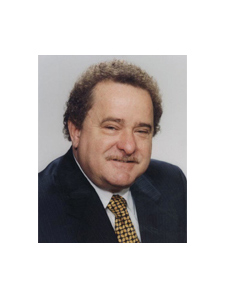 William J. Mcfaul
William J. Mcfaul William J. Mcfaul
William J. Mcfaul
Work Experience – Minimum 10 years of service within the healthcare supply chain (including a hospital or nonacute care facility, manufacturer, distributor, GPO, consulting or service company).
Work Performance – Specific accomplishments/achievements in their respective organizations, including expense management measures, committee involvement and management leadership.
Professional Activities – Minimum 5 years of active association participation (e.g., office holder, committee chair or contributor, organizing and running meetings, mentoring others) on the national, regional and local level; performed a minimum of two speaking engagements (national, regional, local, facility) and published at least twice (including writing an article or being interviewed by the trade media) during career.
Advancing the Profession/Industry Influence – Challenging the norms, contributing to the thought process, pushing the envelope in terms of moving the profession/industry forward. Examples include serving as a mentor either within his or her individual organization or on a national, regional or local level outside of his or her individual organization; internal inservices for the C-suite on supply management; pioneering new concepts and ideas that may or may not become reality; influencing those up and down the corporate hierarchy on the benefits of and promotion of sound supply management.
McFaul never shied away from making the tough decisions and making them quickly. He also was one to roll up his sleeves and actually do the work, instead of delegating everything to others. He was never satisfied with any concept at face value and was motivated by the mere notion of challenging himself. Liked to tinker with every concept – expand, modify, recreate it. After each project, he would analyze the results and figure out ways to do processes differently – and better, if possible. One of his key motivations today is disrupting conventional thinking and processes from the C-suite on down the management ladder, redesigning how executives become executives and leaders become leaders.
What are your thoughts about the mission and philosophy of Bellwether League Inc. and how do you feel about becoming part of the organization as an honoree and inductee?
To me, the most significant aspect of being nominated by the Bellwether League is the fact that my selection was made by some of the most qualified professionals who have ever worked in the industry. Unselfishly, the nominating committee agreed that those involved with the League would not be eligible for nominations for a three year period. In my opinion, the entire nominating committee will undoubtedly be honorees as that moratorium expires.
The mission of the Bellwether League offers supply chain professions (purchasing agents, materials managers, resource management executives and group purchasing executives) the ability to be honored for their contribution to the country at large. Little thought is given to the fact that, regardless of the title or specific duties, supply chain executives are making a major contribution to restrain excessive healthcare expenditures.
The Bellwether League process will provide recognition for the profession as a whole and, hopefully, supply chain executives will gain even greater respect for their contributions to all of the U.S.; not merely to their employer.
What attracted and motivated you to join the healthcare supply chain management field when you did?
Since joining the healthcare industry in 1968, the satisfaction of growing professionally into a position that offers measureable outcomes that impact a large number of providers has been my primary motivating factor. While the rewards of working directly in a provider setting were substantial, the enjoyment for me as an executive in the shared services industry and then as a consult/owner of a firm working throughout North America were immeasurably better.
For what one contribution would you like to be most remembered?
My efforts to change the perception of the purchasing and materials professions into one where executives are recognized for their leadership and change management contributions was one for which I would like to be remembered. Unfortunately, all too often, by the nature of one’s title, too many executives are perceived as merely performing inventory control and rote order placement duties.
While the mid-1990s the effort to have the position of Chief Resource Officers become common place wasn’t successful, I hope someone reinvigorates those efforts.
If you were to encourage people – either outside of healthcare or just out of school – to enter the supply chain management field and potentially qualify to be a future Bellwether League Inc. honoree, what would you tell them?
Future success in the healthcare supply chain profession will depend upon leadership and communication skills. Trying to convince someone to follow mandates hasn’t worked in the non-profit sector of healthcare. The future lies in being able to get people to want to give you what you want. It will not be linked to IT skills or product knowledge. They should focus on sharpening their kills in inter-disciplinary communication and team dynamics.
What is the one industry challenge you would like to see solved in your lifetime?
The most serious challenge in the entire business sector in the U.S. is the control of healthcare expenditures. The U.S. cannot compete globally unless we rein in (reduce) our healthcare expenditures. To accomplish this objective, the politicians and leaders of corporate America must realize that healthcare reform isn’t merely reforming insurance. Until the providers reconfigure their processes without the horrors of re-engineering-type reforms, the chance of success diminishes as each year passes. In my lifetime, I hope providers will overcome the silo-based operating structures that inhibit the true inter-disciplinary collaboration the industry needs to end the current crisis.